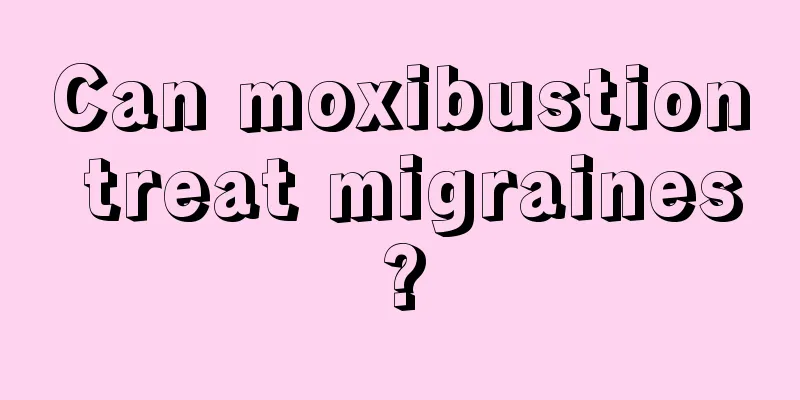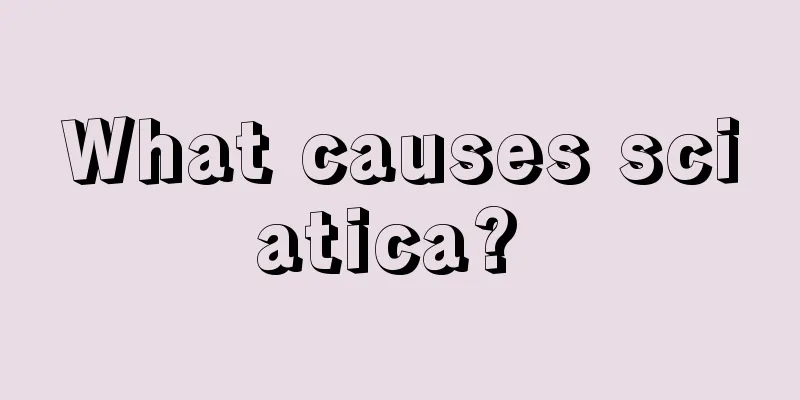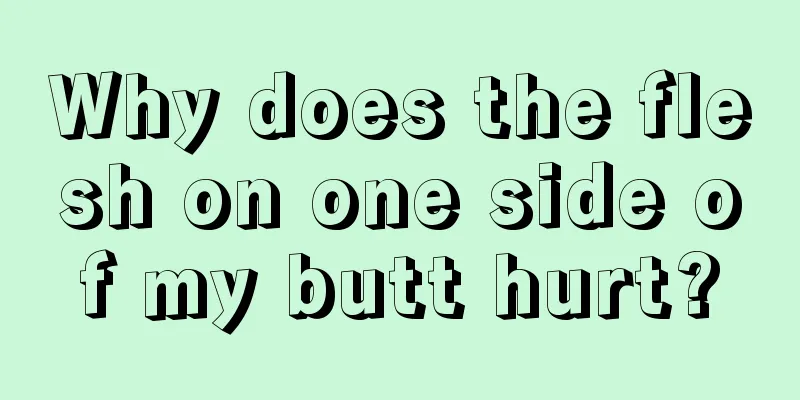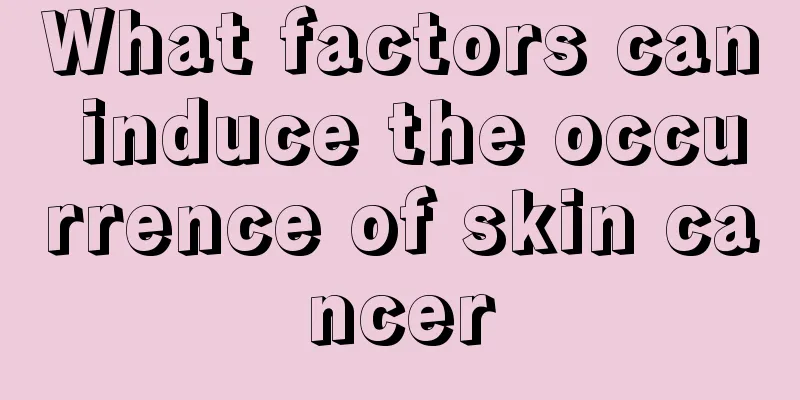Notice! These 53 diseases do not require infusion!
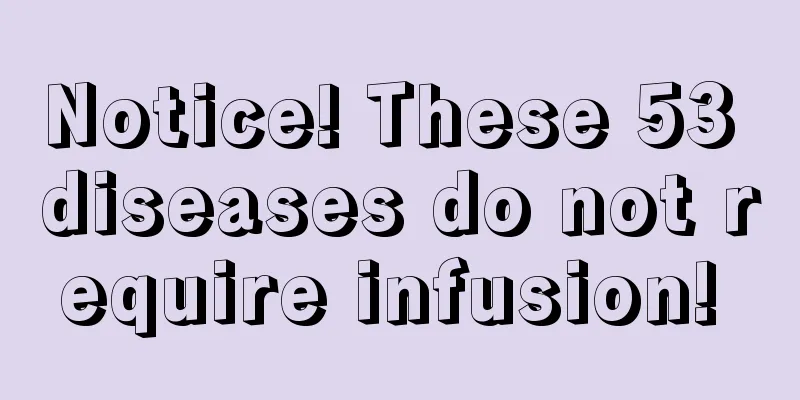
|
The Anhui Provincial Health and Family Planning Commission released a list of “53 diseases that do not require infusion”. Among them, common and frequently occurring diseases, some surgical and gynecological inflammations, and children's diseases clearly do not require the use of antibiotic infusions. Experts say that some "inflammations" are not bacterial infections and antibiotics are ineffective. This is an officially released list. It is rigorous and has reference value. It is worth collecting a copy. ● Internal Medicine 1Upper respiratory tract infection: common cold, viral pharyngitis 2Acute tracheobronchitis, body temperature below 38°C 3. Bronchiectasis without acute inflammation 4 Bronchial asthma is in the chronic persistent stage and remission stage 5 Pulmonary tuberculosis (except disseminated pulmonary tuberculosis) 6Interstitial lung disease without obvious respiratory distress 7COPD remission 8 Uncomplicated varicella, mumps, rubella 9 Hypertensive urgency 10Chronic superficial gastritis 11 Non-infectious diarrhea with anhydration and electrolyte imbalance 12Simple Helicobacter pylori infection 13 Mild colitis 14 Uncomplicated peptic ulcer 15 Mild liver impairment with clear etiology 16 No organic lesions were found after multiple visits to the doctor, so functional gastrointestinal disease was considered 17 Acute cystitis 18 Spontaneous pneumothorax without complications 19Simple premature ejaculation and ventricular premature ejaculation 20 Endocrine and metabolic diseases without acute complications 21 Alzheimer's disease without special complications, hemifacial spasm, motor neuron disease, multiple tics, sleep disorders, anxiety, depression, migraine 22 Epilepsy (except status epilepticus and frequent epileptic seizures) 23 Primary and secondary prevention of cerebrovascular diseases without special complications (non-acute stage of cerebrovascular diseases) 24 Renal anemia, nephrotic syndrome, chronic glomerulonephritis, proteinuria without special complications Interpretation: Antibiotics are only useful when bacteria cause inflammation Experts say that there are four major types of stimuli that cause inflammation: biological (bacteria, viruses, parasites), physical, chemical, and immune overload. Among diseases with "inflammation", only those caused by bacteria will be effectively treated with sensitive antibiotics. Colds, mumps, etc. are caused by viruses and antibiotics are ineffective. Inflammation caused by physical or chemical factors, such as pharyngitis, is sometimes caused by talking too much, eating spicy food, etc., and generally does not require the use of antibiotics. ● Surgery 1After resection of superficial tumor 2 Mild surface infection (no fever, normal blood count) 3 Mild soft tissue contusion 4 After minor body surface debridement 5. Superficial phlebitis 6. Osteoarthritis in the elderly 7 Non-acute lumbar disc herniation and spinal stenosis 8Limb fractures treated with closed non-surgical methods 9Chronic strain diseases 10. Chronic cystitis 11Chronic prostatitis 12. Prostatic hyperplasia 13. Kidney stones without complications 14. Seminal vesiculitis 15Acute rhinitis, various types of chronic rhinosinusitis, allergic rhinitis, acute sinusitis without complications 16Acute simple pharyngitis, chronic pharyngitis, acute simple tonsillitis 17 Acute laryngitis (except severe cases), chronic laryngitis 18 Acute and chronic external otitis, acute and chronic otitis media without complications, external auditory canal eczema, myringitis Interpretation: Surgery is the hardest hit area for antibiotics It is reported that surgical departments have become the hardest hit areas for antibiotics. Data show that the use rate of antibiotics among hospitalized patients in my country has reached 97%. Fan Zhimin, deputy director of Nanjing Hospital of Traditional Chinese Medicine and anorectal surgery expert, introduced that for the removal of some small lumps on the body surface, if the patient's physical condition is good and there is no obvious redness, swelling, heat, pain or surface infection (such as no fever and normal blood count), there is no need for infusion after the operation. Of course, from the perspective of surgery, we must also look at infusion dialectically. "For example, some people have weaker resistance to infection and may still need to use antibiotics rationally." ● Gynecology 1Chronic pelvic inflammatory disease 2Chronic cervicitis 3 Asymptomatic uterine fibroids 4 Bartholin's gland cyst 5. Vaginitis and vulvitis 6Primary dysmenorrhea 7. Not associated with anemia or irregular menstruation |
<<: Does posture determine health, or does health determine posture?
>>: What is the difference between Kuding tea and Pu'er tea
Recommend
How long does it take for the wrist to heal after cardiac angiography
As people age, their immunity declines and variou...
Where is the duodenum located
The duodenum is a part of the human body. If peop...
Five preoperative examinations for esophageal cancer help determine the nature of the tumor
Before surgery, patients with esophageal cancer n...
What medicine can I take to relieve the pain of rectal cancer
What medicine can I take to relieve the pain of r...
What causes acute pneumonia?
Acute pneumonia is actually an infectious disease...
I can't wear contact lenses
In life, many people don’t like to wear frame gla...
How to treat brain metastasis from gastric cancer? You can choose these three methods
The treatment of gastric cancer brain metastasis ...
How to wear summer clothes with scars on the neck
It is inevitable to encounter bumps and bruises i...
How to fundamentally prevent the occurrence of lymphoma
In daily life, cancer is extremely harmful to the...
What are the dangers of encephalitis?
Encephalitis is a disease that is quite harmful. ...
What diseases can be complicated by esophageal cancer?
Esophageal cancer is a malignant tumor that mostl...
Will taking folic acid give birth to a boy or a girl?
Now many young people know that they should start...
Is it good for your health to quit smoking all of a sudden?
Cigarettes are something that contain toxic ingre...
What are the symptoms of foot nerve damage
Every part of the human body is connected to nerv...
What are the disadvantages of eating too much salt? Is it harmful?
None of us can live without salt, but the more sa...


